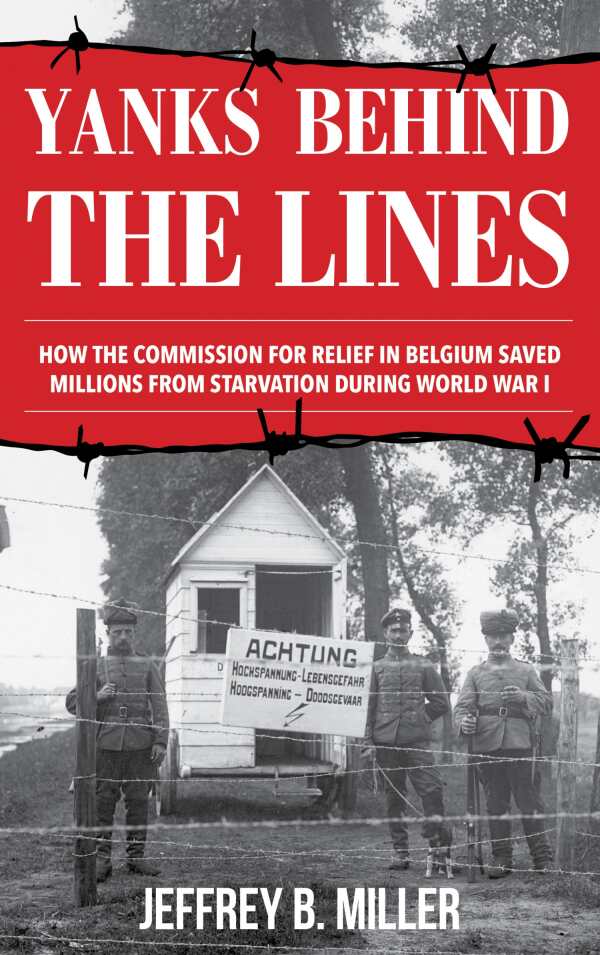Yanks Behind the Lines
How the Commission for Relief in Belgium saved millions from starvation during World War 1
- 2020 INDIES Finalist
- Finalist, War & Military (Adult Nonfiction)
This book is a worthy testament to everyone who participated in an admirable WWI endeavor.
Jeffrey B. Miller chronicles a massive but little known humanitarian organization in his fascinating historical account, Yanks Behind the Lines.
One of Germany’s first acts during World War I was to invade and isolate Belgium, preventing it from importing necessary food supplies. Realizing that an entire nation teetered on the brink of starvation, a small group of Belgian businessmen and wealthy Americans teamed up to find a solution. What started as an improvisational movement quickly became the largest humanitarian effort the world had ever seen: almost ten million people throughout Belgium and northern France were fed for four years.
The Commission for Relief in Belgium was founded by future US president Herbert Hoover. He was passionate about the cause, acquiring permissions from the belligerents and leveraging the mass media to garner public support. But he was still human and capable of making questionable decisions. Personal rivalries—particularly that between Hoover and Belgian philanthropist Émile Francqui, whose cooperation was critical to the Commission’s success—jeopardized the mission more than once.
The book covers a wide range of territory, from the technical aspects of the operation to personal stories about how the Commission’s delegates struggled to remain neutral in the face of German atrocities. Miller draws on contemporary sources, including an unpublished account of the Commission’s work, as well as memoirs and even family stories: his grandparents helped to provide food for Belgian citizens. This results in a more rounded portrait of the Commission and the men behind it.
In the front of the book, there is a map showing the flow of food into Belgium and a list of prominent figures involved in the operation. Contemporary photographs are interspersed throughout to show the relief effort at work and the trailblazers who made it all possible. A few sentences are overlong and clumsy, but this does not diminish the book’s overall impact. It is a close-up, invaluable treatment of its subject matter.
The Commission may be obscure now, but its influence is still evident in today’s world. Miller shows how the experience of working with the Commission affected people like Maurice Pate, who later founded UNICEF, and Hoover himself, who used the reputation boost provided by his Commission work to win the presidency. Above all, Miller emphasizes not the dubious glories of war, but war’s impact on ordinary people, and the amazing feats that people can achieve when they are determined enough. World War I brought unprecedented chaos and carnage, he shows, but it also sparked an outpouring of charity greater than anyone thought possible. This book is a worthy testament to everyone who participated in this admirable endeavor.
Yanks Behind the Lines is a straightforward history of one of the largest humanitarian aid efforts ever organized.
Reviewed by
Eileen Gonzalez
Disclosure: This article is not an endorsement, but a review. The publisher of this book provided free copies of the book and paid a small fee to have their book reviewed by a professional reviewer. Foreword Reviews and Clarion Reviews make no guarantee that the publisher will receive a positive review. Foreword Magazine, Inc. is disclosing this in accordance with the Federal Trade Commission’s 16 CFR, Part 255.

